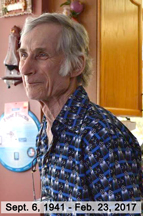- News Front Page
- Uncategorized
- Headline News
- Filipino Calgarian
- Business
- Pinoy Stories
- Community News
- Publisher's Note
- The Main Ingredient
- Views and Opinions
- Maikling Kwento
- Alberta News
- OFW – Month
- Travel News
- Health and Lifestyle
- Pinoy Toons
- Pinoy Spirit
- Entertainment
- The Philippine Lawyer
- Horoscope
- Greetings
- About Us
- Greetings From the Prime Minister
- Greetings from the President of the Philippines
- Greetings from the Premier of Alberta
- Greetings from the Mayor of Calgary
- Advertise With Us
- Disclaimer
- Subscription
Publisher's Note
- Publisher’s Note
 by CK
May is the month of flowers not just in the Philippines but also here in Calgary. A lot of my neighbors have done their spring cleaning and unfortunately I cannot cope up with them. I remember that during this time of the year my husband, Hank gets busier day by day. He takes care [...]
by CK
May is the month of flowers not just in the Philippines but also here in Calgary. A lot of my neighbors have done their spring cleaning and unfortunately I cannot cope up with them. I remember that during this time of the year my husband, Hank gets busier day by day. He takes care [...]
Visitors to Pinoytimes
Page added on April 21, 2016
Poisoning
A poison is a substance that has toxic effects and may injure you or make you sick if you are exposed to it. Poisons can be found everywhere, from simple household cleaners to cosmetics to houseplants to industrial chemicals. Even medicines that are taken in the wrong dose, at the wrong time, or by the wrong person can cause a toxic effect. Poisonous substances can hurt you if they are swallowed, inhaled, spilled on your skin, or splashed in your eyes. In most cases, any product that gives off fumes or is an aerosol that can be inhaled should be considered a possible poison. More than 90% of poisonings occur in the home.
Young children have the highest risk of poisoning because of their natural curiosity. More than half of poisonings in children occur in those who are younger than age 6. Some children will swallow just about anything, including unappetizing substances that are poisonous. When in doubt, assume the worst. Always believe a child or a witness, such as another child or a brother or sister, who reports that poison has been swallowed. Many poisonings occur when an adult who is using a poisonous product around children becomes distracted by the doorbell, a telephone, or some other interruption.
Young children are also at high risk for accidental poisoning from non-prescription and prescription medicines. Even though medicine bottles are packaged to prevent a child from opening them, be sure to keep all medicines away from where children can reach them.
Teenagers also have an increased risk of poisonings, both accidental and intentional, because of their risk-taking behaviour. Some teens experiment with poisonous substances such as by sniffing toxic glues or inhaling aerosol substances to get “high.” About half of all poisonings in teens are classified as suicide attempts, which always requires medical evaluation.
Adults—especially older adults—are at risk for accidental and intentional poisonings from:
- Alcohol and illegal drugs. For more information, see the topic Alcohol and Drug Problems.
- Gas leaks, such as exhaust leaks from heaters and stoves and automobile exhaust. For more information, see the topic Carbon Monoxide Poisoning.
- Medicines, such as acetaminophen, antibiotics, cough and cold remedies, vitamins, pain relievers, sleeping pills, and tranquilizers.
- Household cleaning supplies and other substances, such as cosmetics, antifreeze, windshield cleaner, gardening products, and paint thinners.
- Herbal products.
Symptoms of poisonings
The symptoms of a suspected poisoning may vary depending on the person’s age, the type of poisonous substance, the amount of poison involved, and how much time has passed since the poisoning occurred. Sometimes poison doesn’t cause any symptoms. Some common symptoms that might point to a poisoning include:
- Nausea and vomiting.
- Cramps.
- Throat pain.
- Drooling.
- Sudden sleepiness, confusion, or decreased alertness.
- Anxiousness, nervousness, irritability, or tremors.
- Seizures.
- Substance residue or burn around the mouth, teeth, eyes, or on the skin.
- Trouble breathing.
- Headache.
Poison control centres, hospitals, or your doctor can give immediate advice in the case of a poisoning. Have the poison container with you so you can give complete information to the poison control centre, such as what the poison or substance is, how much was taken and when. Do not try to make the person vomit.
POISONING: HOME TREATMENT
First aid home treatment measures for suspected poisoning
Call your local poison control centre, hospital, or doctor immediately. Have the poison container with you so you can give complete information to the poison control centre. Do not try to make the person vomit.
The poison control centre will be able to help you quickly if you have the following information ready:
- Your name and phone number
- The name, age, weight, and health status of the person who has been poisoned
- Type of product. Read the brand name as it is written on the label. Include the list of ingredients and the company name and contact number, if it is available on the label.
- Amount of product involved in poisoning
- Type of poison exposure—swallowed, inhaled, or in contact with the eyes or skin
- Time of poisoning
- Whether the person vomited
- Any first aid measures taken
- Your location and how far you are from an emergency medical facility
If the poison control centre recommends medical evaluation, take the product container or substance and any stomach contents that the person vomited to help doctors determine the seriousness of the poisoning.
Note:
Do not use syrup of ipecac. It is no longer used to treat poisonings. If you have syrup of ipecac in your home, call your pharmacist for instructions on how to dispose of it and throw away the container. Do not store anything else in the container.
Activated charcoal is also not used at home to treat poisonings.
The poison control centre has guidelines on what treatments are needed for all types of poisons.
If a poisoning was intentional, first get help as described above. Then check your local phone book or provincial website for suicide resources on getting help in your area.
Symptoms to watch for during home treatment
Follow the instructions you received from your doctor or the poison control centre about seeking medical evaluation. Call your doctor if any of the following occurs during home treatment:
- New symptoms develop.
- Symptoms do not go away as expected.
- Symptoms become more severe or more frequent.
For 24/7 nurse advice and general health information call health Link at 8-1-1.
Source: www. myhealth.alberta.ca
Translated with permission from Healthwise Inc.© and is not intended to replace the advice of care you get from your provider or other healthcare professional. Always consult your health professional for medical diagnosis and treatment.
RELATED STORIES
LATEST HEADLINES
- Alberta implements provisional ban on temporary foreign workers
- April 2017 photo enforcement locations
- New support for Alberta’s women entrepreneurs
- Miss Universe France Iris Mittenaere Crowned MISS UNIVERSE 2016
- Growth of good jobs for Canadians the goal of the Global Skills Strategy
COMMUNITY NEWS
 WHAT IS THERE TO LOSE?
WHAT IS THERE TO LOSE? Changes to Regulations Will See Age Increased for Dependent Child
Changes to Regulations Will See Age Increased for Dependent Child ABS-CBN Files $5M Lawsuit Against Casinillo and Gonzalez For Selling Pirated Set-Top Boxes in Edmonton, Canada
ABS-CBN Files $5M Lawsuit Against Casinillo and Gonzalez For Selling Pirated Set-Top Boxes in Edmonton, Canada Forever in our Hearts
Forever in our HeartsPINOY STORIES
 More Pinoys enjoys Kapamilya Shows via ABS-CBN TV Plus
More Pinoys enjoys Kapamilya Shows via ABS-CBN TV Plus- Holy Week practices in the Philippines
PINOY SPIRIT
HAVE YOUR SAY
Lorem ipsum dolor sit amet, consectetur adipiscing elit, dolor sit ipsum.PROMOTIONAL BLOCK
Lorem ipsum dolor sit amet, consectetur adipiscing elit, dolor sit ipsum.TRAVEL NEWS
PINOY TOONS
Tags
Archives















